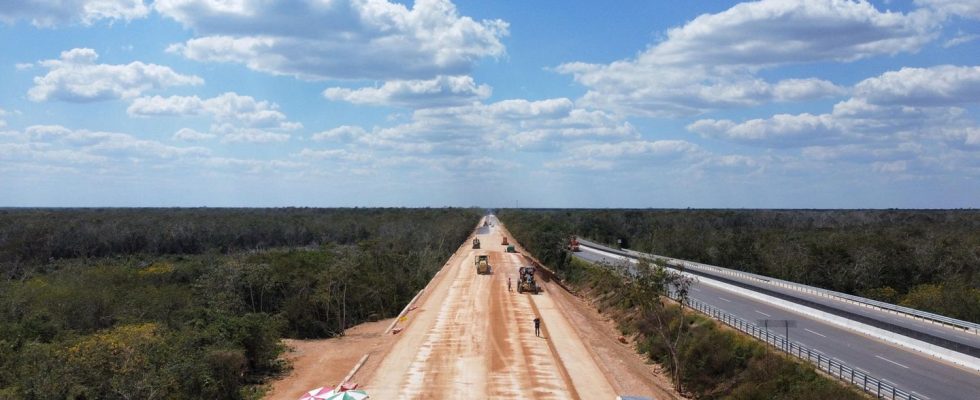Mexico
How environmentally friendly is the new Maya Railway?
Lanes for the new train in Mexico
© REUTERS
Huge paths are being cut through the rainforest on the Yucatán Peninsula for the Mayan Railway. Environmental activists are protesting against it.
Even the name is misleading: Tren Maya. The Mayan train. The new railway line runs 1,500 kilometers across the Yucatán Peninsula, through the second largest rainforest in Latin America. A section will open this week. The descendants of the Maya, however, want little to do with the Mexican government’s mega-project.
The route in eastern Mexico is intended to connect the Caribbean cities of Cancún and Playa del Carmen with Mayan archaeological sites and further stimulate the economy in the poor region. That’s what left-leaning President Andrés Manuel López Obrador, who has a penchant for large-scale projects, wants. Deutsche Bahn also helped with the development.
At least 25 lawsuits against the project
First and foremost, however, the 20 billion euro high-speed train will benefit the three million tourists from the USA, Canada and Europe every year who are already overloading the ecologically sensitive area. Nine million trees had to be removed for construction after the president loudly announced: “Not a single tree will be felled.” Scientists warn of serious environmental damage in the Calakmul Biosphere Reserve, a UNESCO World Heritage site where ancient pyramids lie overgrown by rainforest. It is home to most of Central America’s surviving jaguars and dozens of birds and reptiles that are threatened with extinction.
At least 25 lawsuits were brought by opponents of the project, without success. “The government promised us the most beautiful things,” says Sara López Gonzaléz, a representative of the region’s indigenous council, “but the opposite will happen. It is a mega-project of death. Ecocide.” Because of her protest, López was arrested. Mexico is considered the most dangerous country for environmental activists in the world.
Because President López Obrador dislikes any resistance, he quickly declared the Tren Maya a “national security project” and deployed the army “for protection.” As a result, 3,000 families along the route have already been displaced from their homes.



